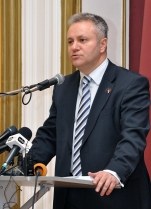- Serbia
Get to know Serbia
- Citizens
Culture and science
Health services
Pension and disability insurance
- Business
Employment
Economy
- Media
- Government
- Contact
Keep in touch
Contact form
Back
Keepin touch
Whether you have a question, comment, suggestion or any problem in the purview of the government, send us your message and we will try to respond as soon as possible. If your problem is not in our purview, we will forward your message to the relevant institution.
Q:
A:
Serbia will evade recession
Nis,
25 February 2009
Serbian Deputy Prime Minister and Minister of Economy and Regional Development Mladjan Dinkic today announced that the government will discuss additional measures for the alleviation of the global financial crisis and voiced his belief that Serbia will evade recession and reach economic growth.
He said that the government’s measures have already yielded satisfactory results.
The government will adopt a programme for the replacement of old vehicles with a new Punto at its next session, scheduled for February 26, where it will also discuss possible support for all companies which are in a difficult position.
Minister Dinkic noted that the government is planning to implement multilateral compensation in order to break a chain of mutual debts.
Dinkic pointed out that Serbian citizens have shown a great interest in consumer loans, adding that all of the Zastava 10 vehicles were sold in only two days.
The Deputy Prime Minister today announced that a technology park will soon be constructed at the site of the Elektroindustrija Nis company.
He said that the decision on joint investment by the City of Nis and Serbia to build a technology park will be made at the government’s session in March, and a special enterprise “Technology Park – Nis Incubator Centre” will be formed.
Dinkic explained that Nis city authorities will decide to remove local taxation for all investors and scientific activities and the Serbian government will make a decision concerning special financial incentives for all investors.
We believe that with professional management the technology park will become a reality by the middle of this year, said Dinkic.
He said that the idea is to involve all technological faculties in Nis and to give special encouragement to the electronic, mechanical and information industries.
Dinkic and State Secretary for regional development Dejan Jovanovic spoke today in Nis at the public debate on the draft regional development law.
Dinkic also presented a draft law on regional development, which will be adopted by the government in March and by parliament before the end of this year.
Apart from Vojvodina and Belgrade, Serbia will be strategically divided into western, eastern, central, southern and the Kosovo-Metohija region, said Dinkic, adding that around RSD 15 billion will be set aside from the 2010 budget for regional development.
Dinkic pointed out that the law on regional development is not a precondition for Serbia’s EU accession, but it will considerably contribute to its development.
The law also envisages the establishment of a national council, which will define regional policy and a national agency which will implement that policy in the field.
Minister added that the government will also set up regional agencies, which will be under the authority of the national agency.
The law envisages the criteria for the distribution of funds, which will help diminish differences in the development of Serbian regions.
This law is only a beginning of decentralisation process, concluded Dinkic.
The government will adopt a programme for the replacement of old vehicles with a new Punto at its next session, scheduled for February 26, where it will also discuss possible support for all companies which are in a difficult position.
Minister Dinkic noted that the government is planning to implement multilateral compensation in order to break a chain of mutual debts.
Dinkic pointed out that Serbian citizens have shown a great interest in consumer loans, adding that all of the Zastava 10 vehicles were sold in only two days.
The Deputy Prime Minister today announced that a technology park will soon be constructed at the site of the Elektroindustrija Nis company.
He said that the decision on joint investment by the City of Nis and Serbia to build a technology park will be made at the government’s session in March, and a special enterprise “Technology Park – Nis Incubator Centre” will be formed.
Dinkic explained that Nis city authorities will decide to remove local taxation for all investors and scientific activities and the Serbian government will make a decision concerning special financial incentives for all investors.
We believe that with professional management the technology park will become a reality by the middle of this year, said Dinkic.
He said that the idea is to involve all technological faculties in Nis and to give special encouragement to the electronic, mechanical and information industries.
Dinkic and State Secretary for regional development Dejan Jovanovic spoke today in Nis at the public debate on the draft regional development law.
Dinkic also presented a draft law on regional development, which will be adopted by the government in March and by parliament before the end of this year.
Apart from Vojvodina and Belgrade, Serbia will be strategically divided into western, eastern, central, southern and the Kosovo-Metohija region, said Dinkic, adding that around RSD 15 billion will be set aside from the 2010 budget for regional development.
Dinkic pointed out that the law on regional development is not a precondition for Serbia’s EU accession, but it will considerably contribute to its development.
The law also envisages the establishment of a national council, which will define regional policy and a national agency which will implement that policy in the field.
Minister added that the government will also set up regional agencies, which will be under the authority of the national agency.
The law envisages the criteria for the distribution of funds, which will help diminish differences in the development of Serbian regions.
This law is only a beginning of decentralisation process, concluded Dinkic.
-
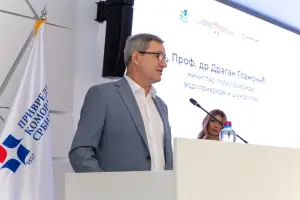 Belgrade, 11 August 2025
Belgrade, 11 August 2025Support for agricultural projects worth RSD 750 million
-
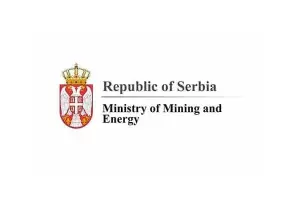 Belgrade, 21 July 2025
Belgrade, 21 July 2025Construction of oil pipeline with Hungary to begin early next year
-
 Belgrade/Athens, 17 July 2025
Belgrade/Athens, 17 July 2025Serbia continues to align with EU in field of energy
-
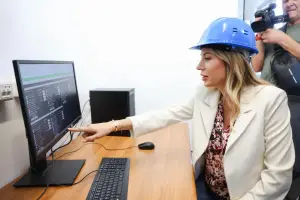 Kostolac, 14 July 2025
Kostolac, 14 July 2025First solar power plant Petka in Kostolac put into trial operation
-
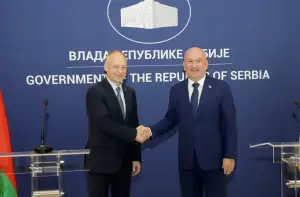 Belgrade, 11 July 2025
Belgrade, 11 July 2025Potential for improving cooperation with Belarus in many areas
-
 Požega, 5 July 2025
Požega, 5 July 2025Section of Pakovraće - Požega highway officially opened
-
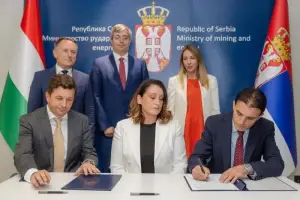 Belgrade, 2 July 2025
Belgrade, 2 July 2025Technical specifications defined for Serbia-Hungary oil pipeline
-
 Belgrade, 30 June 2025
Belgrade, 30 June 2025IMF confirms Serbia successfully implementing all agreed reforms
-
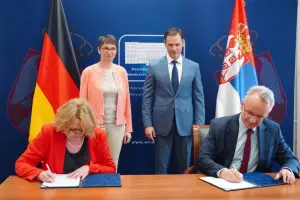 Belgrade, 27 June 2025
Belgrade, 27 June 2025Double Taxation Avoidance Agreement with Germany signed
-
 Kostolac, 25 June 2025
Kostolac, 25 June 2025Construction of Kostolac wind farm nearing completion

